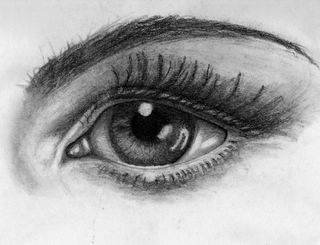“What do you think about the person you’ve become?” I asked him this morning. I had to reword and explain what I meant and why. I wanted to know if I had done the right thing by teaching him how to behave in society. I told him about he bloggs I have read online, that one of the people thinks that ABA, IBI or other similar treatments are contrary to what is best for some people with autism. Her point is that society should become more accepting and that parents should stop trying to make their autistic children better.
“It depends on the individual person!” he replied. Immediately, I knew I was about to hear something profound. “Some of the people who have autism” he continued “are ok with having to be taken care of, and don’t care at all what anyone else thinks. I want an independent life. I want to have all of the choices everyone else has. I need to know how to fit in so I can have the chance at an independent life.”
It’s a fine line, and one we all have to walk. How much of our own individuality are we to sacrifice in order to fit in and be independent productive members of society? How much of another’s individuality do we have a right to impede on to protect our own? What role does a disability have in our own individuality?
I work with profoundly disabled children. I have had the unique opportunity to observe the different personality traits that are connected to a specific disability. People who have Down’s Syndrome are typically stubborn , clever, and funny. The kids I have known who have FAS are slower and highly gullible, but sweet and innocent. Kids who have autism like the company of others, but on their terms, and they get a lot of laughs when they blurt out something that is totally off topic.
All of the kids I work with share one thing in common. Their behaviors set them apart from their peers. Even when those behaviors are entertaining, they build walls that prevent meaningful connections to the “typical” students. While our behaviors are reflections of who we are, we are not our behaviors. Teaching children who don’t automatically "get it" how to behave in socially accepted ways is not a way of changing them into automatons, it is a way of tearing down the walls that keep them separated from the rest of the world.
I would never want to take away the things that make my son who he is, I love who he is. Some of the things I like best about my self are things I see in him. I don’t want him to be one of the sheep, I just want him to know how to navigate successfully through the herd to get to his destination.
I have chronic depressive disorder. Becoming horribly depressed in the winter was a huge part of my behavior. People at work came to expect a flood of tears at least once during the school year. They were extremely accepting of my disability. But those behaviors became a part of who I was, and not a part I particularly liked. So I went to the doctor to get antidepressants. They worked! Without the depression I am a much more likeable person. Anyway, I like me better.
I guess what we have to keep in mind is this: If a person’s disability has a detrimental effect on what they want out of life, then we should give that person the tools they need to get around the disability. I don’t know anyone who has been changed by ABA or IBI. When these techniques are used correctly, they are very efficient and effective ways of giving people with disabilities (not just autism) the tools they need.
I don’t want disabilities wiped from humanity. The kids I work with are the BEST part of humanity! I do agree that we all need to be accepting of EVERYONE’S differences! ALL differences! I fear, however, that we are an evolutionary jump away from getting there. In the mean time, I will teach the ones I can to get along and be everything they dream of being. (even if that is a solitary life in a group home)
Figuring Out the Format of Dinotopia
3 weeks ago







0 comments:
Post a Comment